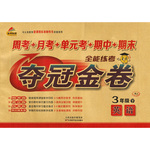题目内容
Pingyao is one of China’s three protected ancient cities (the other two are Xi’an and Jingzhou). Lying in the middle of Shanxi Province, 90 kilometers south of Taiyuan, Pingyao ancient city used to be about two hours’ drive from the capital of Shanxi Province, but now the distance is only one hour and ten minutes’ drive after the highway was built. With a history of over 2,700 years, the ancient city stands out as one of the best protected of all the walled cities in China.
On December 3rd, 1997, UNESCO (联合国教科文组织) added Pingyao to the World Heritage (遗产) List as a world’s culture heritage. According to the UNESCO World Heritage Commission(委员会),the Pingyao ancient city is a wonderful example of the Chinese Han cities during the Ming and Qing dynasties. All the features of the Pingyao ancient city have been protected, and it shows an outstanding Chinese historical development including its culture, society, economy and religion(宗教信仰).
根据短文,从题中所给的A、B、C、D四个选项中,选择最佳答案。(10分)
小题1:How many preserved ancient cities are there in China?
小题2:Why is Pingyao one of the ancient cities?
小题3:It will take you about one hour to get to Pingyao from Taiyuan ______ .
小题4:Pingyao is a wonderful example of the Chinese Han cities during the ______ and ______ dynasties.
小题5:If you go there some day, you shouldn’t ______ .
On December 3rd, 1997, UNESCO (联合国教科文组织) added Pingyao to the World Heritage (遗产) List as a world’s culture heritage. According to the UNESCO World Heritage Commission(委员会),the Pingyao ancient city is a wonderful example of the Chinese Han cities during the Ming and Qing dynasties. All the features of the Pingyao ancient city have been protected, and it shows an outstanding Chinese historical development including its culture, society, economy and religion(宗教信仰).
根据短文,从题中所给的A、B、C、D四个选项中,选择最佳答案。(10分)
小题1:How many preserved ancient cities are there in China?
| A.One. | B.Two. | C.Three. | D.Many. |
| A.Because it is a wonderful example of the Chinese Han cities. |
| B.Because it has a history of over 2,700 years. |
| C.Because all its features have been preserved. |
| D.Because it includes its culture, society, etc. |
| A.by plane | B.by bike | C.by train | D.by car |
| A.Yuan; Qing | B.Ming; Qing |
| C.Song; Yuan | D.Song; Ming |
| A.carve your name on the wall | B.draw a picture on the wall |
| C.litter everywhere | D.destroy the city |
小题1:C
小题2:B
小题3:D
小题4:B
小题5:D
试题分析:这篇短文中作者主要介绍了中国三大古城之一的平遥,重点介绍了它的地理位置、历史地位及重要影响,意在鼓励大家要保护这座古城。
小题1:细节理解题。根据短文第一段Pingyao is one of China’s three protected ancient cities可知,中国有三大古城是值得国人骄傲和自豪的,故选C。
小题2:细节理解题。根据短文第一段With a history of over 2,700 years, the ancient city stands out as one of the best protected of all the walled cities in China.推出,因为平遥有着2700多年的历史,所以才被称为古城;故选B。
小题3:细节理解题。根据短文第一段but now the distance is only one hour and ten minutes’ drive after the highway was built.说明在修建了高速路之后,从太原到平遥驱车只需要一个多小时的路程;故选D。
小题4:细节理解题。根据短文第二段the Pingyao ancient city is a wonderful example of the Chinese Han cities during the Ming and Qing dynasties.可知,平遥古城是明清两代中国汉代城市原形的经典例子;故选B。
小题5:推理判断题。根据短文内容可知,平遥的历史地位及其重要,所以保护这座古城是每个中国公民的义务和责任,所以在那游览时不要破坏那里的建筑,包括随意刻画、乱扔垃圾等不良行为;故选D。

练习册系列答案
 夺冠金卷全能练考系列答案
夺冠金卷全能练考系列答案
相关题目
